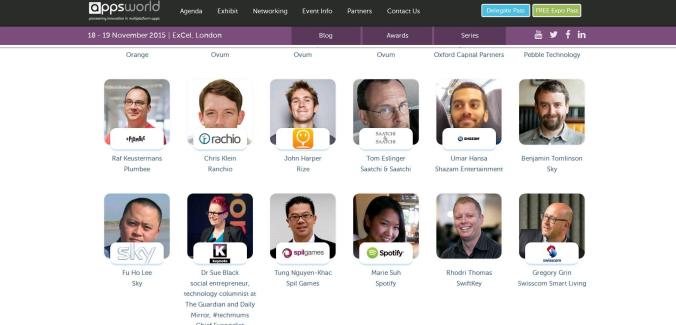Recap:
In part 1 of this post I talked about the process of Rize (mental well-being app) working alongside organisations, educational institutions and counselling services to work out how digital solutions can help to reduce the costs associated with employee mental well-being.
I went on to discuss the requirements for implementing ‘well-being services’ into an organisation – managing the expectations from individuals to managers, the stigmas and privacy requests, whilst still being able to offer a measurable and tangible return on investment to the decision maker.
Managing all of these expectations can be difficult. However, explaining the benefits of employee mental well-being, and the costs associated with no support is becoming a lot easier.
“It used to be mental well-being couldn’t be further from statistical measurement. But as our understanding and technology improves this is all changing.”
Fantastic work has already been carried out by gov.uk, Mind, and NICE. With their help we’ve put together some statistics on the hard £ costs of mental well-being in the work place. It used to be that mental well-being couldn’t be further from statistical measurement. But as our understanding and technology improves this is all changing.
We now know that issues around mental well-being in the workplace (pre-dominantly stress, anxiety and depression) can significantly affect rates of absenteeism, presenteeism (reduced productivity), staff turnover and ineffective communication between staff.
At the same time we are understanding more and more how to reduce these issues. Digital solutions are starting to take pride of place among other, more traditional initiatives such as counselling, health initiatives and other employee benefits.
The problem:
From public resources (references at the bottom) we have compiled hard evidence for a strong case that anyone can use – HR, Occupational Health, Line Managers, University counselling services, Individuals – to argue the case that their teams should be getting more support for mental well-being from their organisation. Below I provide six statistics on the costs and potential savings of mental well-being in the workplace (infographic soon to come):
1 – 1 in 4 people suffer from a mental health issue – most commonly stress, anxiety or depression.
2 – The total cost to employers of mental health problems among their staff is estimated at nearly £26 billion each year.
3 – The average annual cost of mental health problems is £1,035 per employee in the UK workforce.
4 – Of the 70 million days lost each year for mental health reasons, about 10 million are lost because of anxiety, depression and stress which employees say is directly caused by their work or working conditions.
5 – The number of working days lost to stress, depression and anxiety has increased by 24% since 2009
6 – Improving management of mental health in the workplace could result in cost savings of 30%. Per 1000 employees this would mean saving £250,607 a year.
“I’m guessing you don’t want to go into a meeting with just the problem – you want to give them something to smile about! Now you can turn this cost around and show people the way to the solution.”
So how can you get a cost for your own organisation? If you’re in the UK it can be as simple as multiplying the number of employees in your workout by 1035 .. the costs are always very surprising.
But now I’m guessing you don’t want to go into a meeting with just the problem – you want to give them something to smile about! Now you can turn this cost around and show people the way to the solution.

Solutions:
As I mentioned in part one of this post there are a number of existing services you can bring in to help support your staff’s mental well-being and bring the associated costs down:
1. Counselling (in-house or external)
Counselling is by far one of the most popular services offered. You can have an in-house counsellor, a referral system for employees to visit an external counsellor, or have counselling hotlines. For those people who take advantage of counselling at their workplace they can find a lot of value in this. The only issue is for those people who do not feel comfortable talking to counsellors or using a referall system from their workplace. All in all I’d say counselling can be a fantastic first step to supporting your staff. Just make sure you have a way to check that people are using it.
The British Association for Counselling and Psychotherapy provide very helpful guidelines for counselling in the workplace.
2. Health and fitness
Our physical health is inextricably linked to our mental well-being. Being physically active can help to significantly reduce our symptoms of stress, anxiety and depression. Many employers have taken to encouraging staff to take breaks from their work and go for a short walk, or offer their employees gym memberships. This can be a fantastic way to keep people active, and it often improves communications between staff.
3. Digital solutions
There are now a handful of effective apps and desktop software that aim to support staff mental well-being. Rize is one of them..one of the better I like to think. Digital solutions can be a great way to engage employees and provide them with a tool they can use to help themselves.
By being able to access information, exercises and feedback via their smartphones it mean they don’t have to let their employers know that they even have stress or anxiety in the first place. They can do it whenever and wherever they like, without worrying about who knows about it.
This is the fun part where I get to talk about Rize. Our app can be downloaded from any iOS and Android device – smartphone or tablet. Not only can employees access the app completely anonymously and for free, the employer can see overall monthly usage of their subscription to Rize.
Staff login to the app and are provided with a full range of gamified therapeutic exercises and tutorials. They have access to a profile to track their progress and their mood, and we link the app with the users calendar and reminders to allow them to set up positive activities to help them in their day. You can take a look for yourself by downloading the app and using the group code ‘blog’ (limited to 50 trials so download now: iOS – https://itunes.apple.com/us/app/rize/id885430754?mt=8 Android – https://play.google.com/store/apps/details?id=com.rizenow).

Measuring and tracking you Return on Investment (ROI):
The difficulty is – how do you measure the savings? Is you budget being well spent here? Are you making your money back through the savings described above? Mental well-being is a very personal thing. Most employees do not want in any way for their boss to even know if they’re feeling stressed or depressed…from research we’ve found almost everyone feels very strongly about this. So how does the decision maker gather enough information to make an informed decision in this area?
The best three solutions we have found are research, monthly usage data, and staff surveys. If you are able to gather intelligence on all three then you’re onto a winner.
Research: Take a look at the service. See what evidence they have that their solution will be effective – case studies, clinical trials, free trials.
Monthly usage: Make sure you choose a service that can provide basic monthly usage data – nothing about the individual, but enough to find out that what you’re paying for is actually being used.
Staff surveys: Create a short, anonymous survey that asks the employee about their feelings towards support they receive in the workplace, and a few basic questions about their mood. If you want to do this for free you can use something like Survey Monkey or you can go with a professional service such as People Insight. After a few months of providing the chosen well-being service send out the survey again. Compare results and check this with your statistics on absenteeism rates, staff turnover, and any data you may already have on productivity.

In conclusion:
I wanted to keep this post as short as possible whilst making sure it’s full of useful information to you all..so I won’t waffle on now. The purpose of this article has been to convey the message to you that mental well-being in the workplace is now a widely accepted, tangible ‘thing’. People suffer, we all suffer with stress, anxiety and depression at some point, and we all need support sometimes.
If you’re an employer, Manager, HR Director, Team Leader, you can be this supporter. Not just out of the kindness of your heart but because there is hard, compelling data that shows that you can save/make money from supporting employee mental well-being.
By investing in your peoples’ well-being and supporting them you get a very solid return on investment: improved productivity, less stress-related sick days, and increased loyalty..people want to work where they’re happy.







